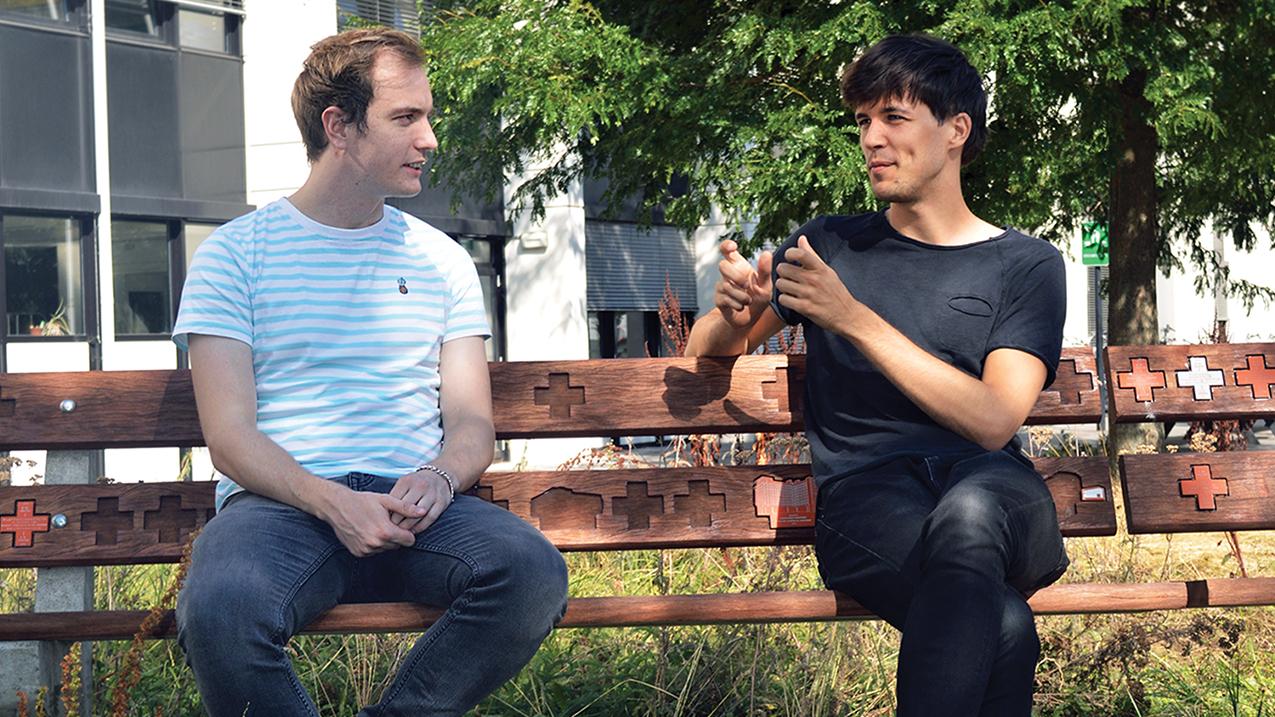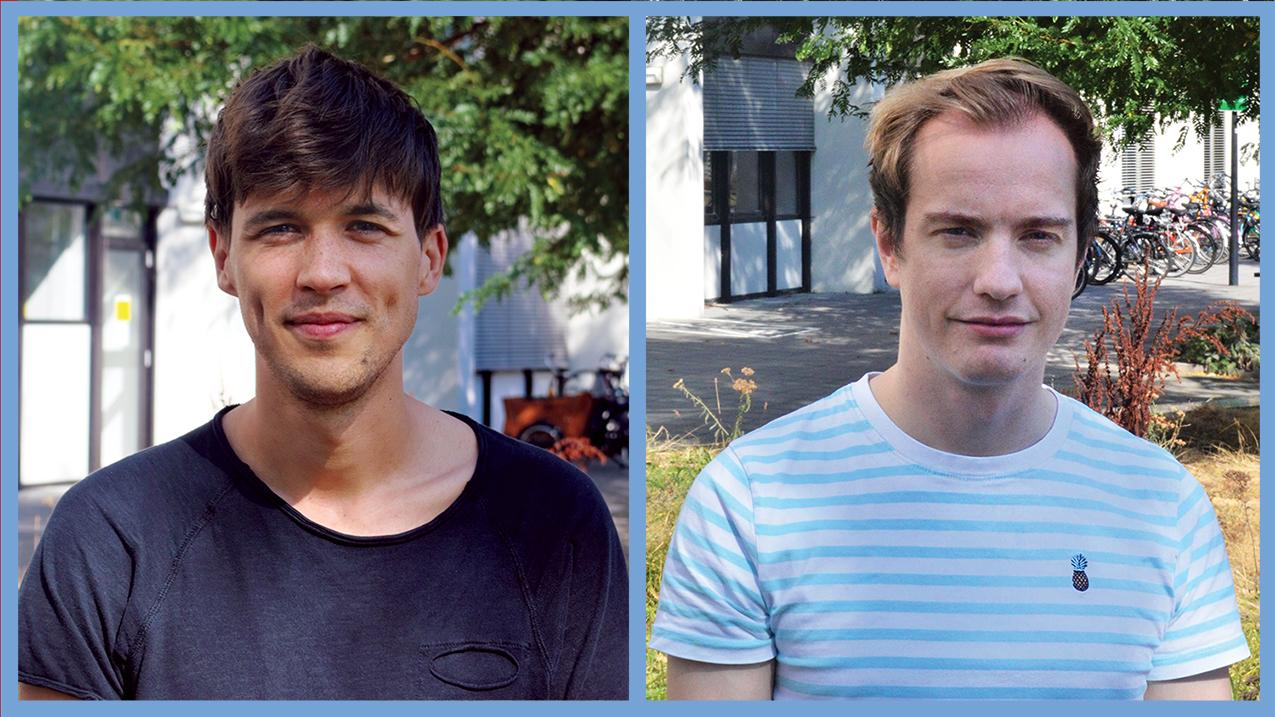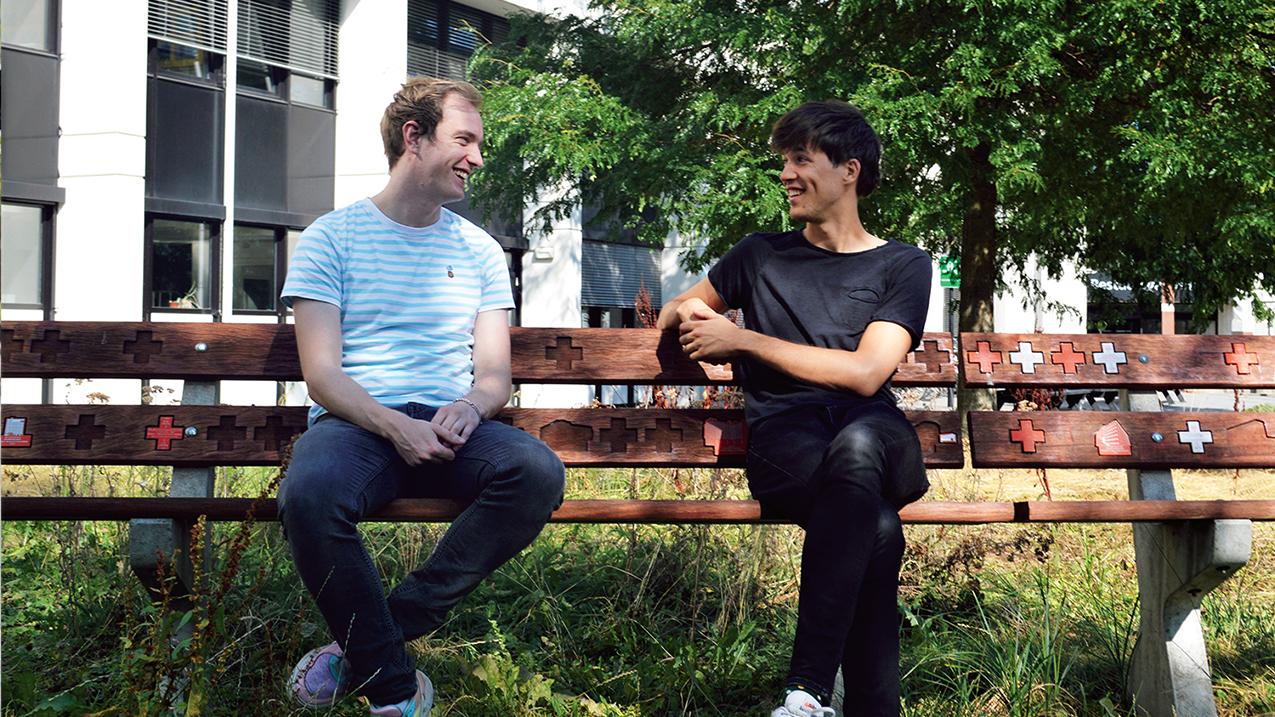A conversation with student psychologists
How are UU students really doing?

The conversation takes place in a small room in the Administration Building. Usually, Arthur van Andel and Jerre Mijnarends are there asking questions to students but, today, as a student editor working for DUB, I’m the one asking questions.
But let’s start by getting to know them a little bit: Arthur (31) has been working as a student psychologist at UU since February, while Jerre started as an intern five years ago and never left. Now, at the age of 28, he is the "oldest" member of the team.
Both find it inspiring to work with young people.
Arthur: “People come here to study, of course, but they're not just students. These are human beings, so I think it's important to pay attention to them. As a student psychologist, I can do just that."
Jerre: “Your years in college are such a dynamic part of your life, even if we don’t count the actual studying. There are lots of things that you will be doing for the very first time and a bunch of questions come along with that, such as: 'Who am I? What do I want? What am I good at?' But also: 'What field of study suits me best?' or 'Who do I feel attracted to?' I think you don’t find out who you really are until you're in college. So, as a student psychologist, it’s great to be allowed to think along with them.”

The student psychologists Arthur van Andel and Jerre Mijnarends.
You don't find out who you really are until you're in college
So, how are UU students really doing?
Jerre: “Research shows they are doing worse now. The pandemic is a crucial factor but students' mental health was already under pressure before that.”
Arthur: “That’s true. But it's still hard to make a factual statement. Being in college is a fun and turbulent time when you’re faced with a lot of situations, there’s just a lot going on. It’s only natural to be faced with difficult things too."
Jerre: “I am allergic to the word ‘happy’, by the way”
What do you mean by that?
Jerre: “What I mean is: It shouldn't be your goal to be happy all the time. Students often tell me that they want to go through college without any stress. But the definition of 'wellbeing' is not ‘continuous happiness’ or ‘a stress-free life.’ There is no such thing.”
There is no such thing as a stress-free life
What should students strive for, then?
Jerre: “I think wellbeing is about having the space to run into problems. It’s about resilience: being able to respond adaptively to different situations. It's about being able to handle tough things and at the same time still have the energy to do fun things and grow.”
You said earlier that Covid had a huge impact on students' mental health. Can you tell us more about that?
Arthur: “It’s been about a year since the peak of the pandemic, a time when students were significantly under pressure. A lot of students kept living with their parents and the ones who did live with other students basically only saw their roommates. Some students even moved back in with their parents. Besides, everything had to be done online, which made it hard for them to be social and build a social network, in the case of those who were new in town. As a result, many students felt lonely. With loneliness often comes depression."
Jerre: “And it wasn’t just the symptoms that got worse: the treatment was harder as well. If someone is having depressive symptoms, I usually advise them to go out and do things. But that was easier said than done during the pandemic. Covid actually took away the perspective I wanted to provide as a psychologist, forcing me to think outside the box when coming up with solutions. That was quite a challenge."
Jerre, you said students were already feeling pressured before the pandemic. Where do you think this pressure comes from?
Jerre: “There are factors the university has no influence on, such as housing and student debt. Many students are worried about money. But I also think that our society attaches a great deal of importance to 'excellent', remarkable students. And that's something the university does contribute to — for example, through the practice of giving a little speech about the students who graduate cum laude during the graduation ceremony. Downstairs, in this very building, there are pictures of students doing extracurricular activities. Things like these generate unrealistically high expectations on some students, who feel pressured to perform.”
Arthur: “And that perfectionism spreads to other areas. One must have it all: good grades, a fun relationship, a great sense of style... But when does someone get perfect, then? We have no definition for that. So, things could always be better. If you focus too much on something, you have to compromise somewhere else at some point. Usually, in overall happiness."
Jerre: “I often speak with students who say: ‘In theory, I have a perfect life (nice boyfriend, nice roommates, an average grade of 8, and so on). So, why am I not happy? And then they get angry at themselves for not being happy. But they can't be happy if they keep setting the bar higher. Then, I ask them: 'What is the standard? And whose standard is it and how do you measure it?'"
One must have it all: good grades, a fun relationship, a great sense of style

How could the university help tackle this pressure to perform?
Arthur: “Before working at UU, I had a job as a student counsellor at a secondary school. There, we didn’t really look at the end result but rather at the process: how did they achieve a certain grade? Did they do it in a new, better, or healthier way than before? Say someone starts studying three hours less a day. This makes them earn the same grade or perhaps one point less but it also makes them happier. You have to find your own standards, your own process. It’s actually funny but it has everything to do with the questions troubling most students: who am I? What way of studying suits me best? If you don't know that, it's easy to focus on grades alone."
Jerre: “Exactly. I think that the university could pay more attention to the question: 'what does it mean to be a good student?' They could communicate more actively that being a good student is not just about grades and performance. After all, the world is, in its majority, run by 'average' people. Average people can do important things too but the focus tends to lie on the outliers. That has to change."
Arthur: “I always say I’d rather be operated on by a surgeon who worked his ass off to get sixes than by someone who scored a high grade without paying any attention.”
Students often find it hard to seek help
So, you are helping students will all sorts of things: dealing with perfectionism, stress, Covid-related problems... But you also help them figure out the answers when it comes to their identity. Can any student come to you or should there be a certain level of urgency?
Jerre: “No, the idea is to keep the threshold as low as possible! Students often refrain from seeking help out of embarrassment or because they wonder whether their problems are serious enough. We want to get rid of that stigma. It doesn’t matter what the situation is or what other people are going through: you can always schedule a conversation with us and then we’ll see what kind of help suits you best.”
Final question: based on all the talks you've had with students is there a piece of advice that suits most of them?
Arthur: “I always remind them of the three R's: rest, regularity, and cleanliness (in Dutch, rust, reinheid and regelmaat, Ed). That may sound like a joke but there’s a reason why it’s a cliche. Whatever you do, try to keep things balanced: sleep, exercise, study and have fun.”
Jerre: “I would remind the average student that everyone, literally everyone, runs into certain problems, has doubts or feels scared and gloomy sometimes. If that’s what you’re going through right now, it's okay and safe to talk to someone about it. For many students, that makes a huge difference.”

An entire magazine on students' mental health!
This article was originally published in our print magazine Vallen en Opstaan ("Falling and getting back up again", Ed) which you can get for free at several places in the entire university from October 19 onwards.
This special edition talks about why UU students often struggle with mental health issues. They have to deal with high expectations coming from others and themselves, not to mention they live in a time where there are many options to choose from, which can be overwhelming. Most of the articles were written by four UU students.
You can take a quiz to see how you fare in the "perfection meter", learn how students overcame obstacles, reflect on the suggestions made by wellbeing experts, and recognise yourself in the photo comic ThirdFloor.
The magazine is in Dutch but all articles are available in English online. Just click here to read them all!